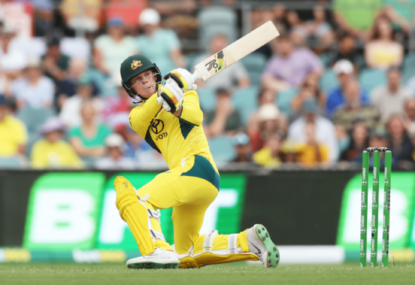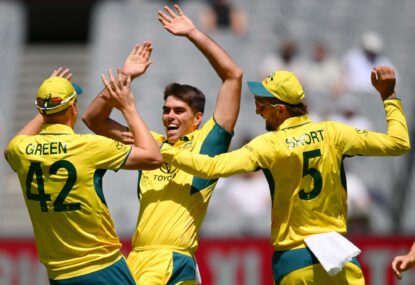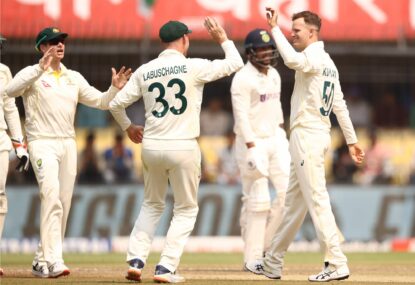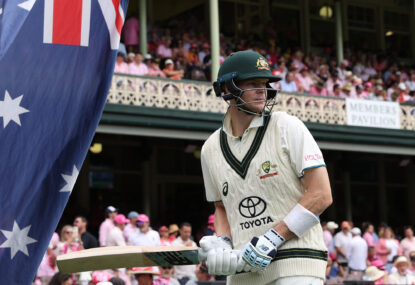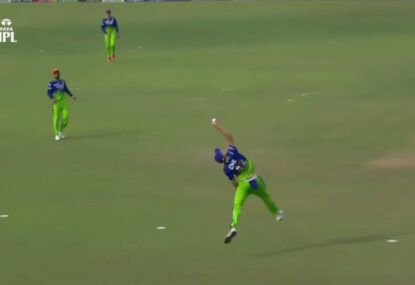Napoleon’s foreign minister, Talleyrand, was a fan of cards. He worshipped them, and was something of a proselytizer. When speaking to a young man on whether he played whist, the negative answer prompted a reproach: ‘Young man, you do not play whist? What a sad old age you reserve for yourself.’
The same could not be said for match fixing, which is something players best avoid if they are to reach a happy old age, preferably with an un-shredded reputation.
But match fixing is an odd hybrid in the world of gambling and risk taking. Conventional gambling involves a wilful surrender to odds (sometime within reason), a casting off of control, an embrace of vulnerability.
The fixing of a match, however, eliminates variables, brings order and predictability to it – at least in so far as a result is concerned.
The odds are often off-field rather than on – being caught or being able to slide away to the next match undetected. Both bookmaker and player always hope for another day.
Cricket’s duration and sophistication is such that fixing in ‘blocks’, or spot fixing, can have various permutations. One can break down sessions of play. Detection is also more problematic.
Hence the seriousness of the recent allegations made by the Pakistani player agent Mazhar Majeed in the trial of Mohammad Asif and former Pakistan captain Salman Butt.
Both players are charged with conspiracy to cheat and conspiracy to accept corrupt payments over a Test match at Lord’s. Majeed himself is said to have received $235,000 to arrange spot fixing at that same test.
Majeed is something of a bragger, not to mention name dropper. His account is lurid and total. If one is a sporting celebrity, one will fix matches.
His constellation of alleged culprits is vast: Brad Pitt, Roger Federer, and the former Pakistan pace duo of Waqar Younis and Wasim Akram, to name but a few.
Majeed has also pointed the finger at Australian quick Nathan Bracken and West Indian all-rounder Chris Gayle. Bracken’s manager, Rob Horton, was furious.
“What a load of garbage, we have never heard of this guy.” Not for Majeed, who is making the claim that there are no bigger participants in the empire of match fixing than Australian cricketers.
We should all know that, at stages in the game, cricketers, even supremos, have shown a tendency to be as pure as driven slush.
While not quite in the stratospheric league of match fixing, Mark Waugh and Shane Warne were the happy recipients of sums of money for pitch reports, a state of affairs that earned them temporary bans.
The allegations of match fixing have been palmed off by Cricket Australia’s James Sutherland.
Australian cricket is beset by enough in the way of structural problems, losing ground to other sporting codes in terms of popularity, and to other international sides who have done much to eclipse the immortal baggy green.
Is Sutherland, however, in denial? Again, a predominantly white, Western voice in cricket rejects the possibility of corruption, when, in truth, such matters are considered part of the order of sport.
How convenient it is that book makers tend to come in greatest number from the subcontinent, and that culpable cricket players form a dominant group from one country – Pakistan.
It is simply patent nonsense to claim, as Australia’s one-day captain Michael Clarke did a few days ago, that it was ‘not the Australian way’ to fix a match. There are those who fix matches, and those who do not.
Besides, Australian sports personalities are renowned for having a punt, but the issue here is one that is far more serious. Where money sloshes about in the system, it will find a way through the guards.
Gambling in the cricket world, and its evil twin, match fixing, is dominated by an assortment of crime syndicates that international players do, and will encounter, at stages of their career.
Lord Condon, one time chairman of the ICC’s anti-corruption unit, spoke of one of the breeding grounds of the lucrative endeavours – the Middle East, where cricket tournaments created worlds of wealth and corruption.
“There tended to be a cocktail of bad people, organised criminals and celebrity cricketers, some coming to the ends of their careers.” Temptation was irresistible.
“It led to a free-for-all, a heady party atmosphere when bad things were done.”
The most eye opening, and saddening tale, was that of South Africa’s Hansie Cronje, a man who, at the behest of book maker Marlon Aronstam, would still go on the field at Centurion in 2000 to force a result in a test match destined for a draw.
South Africa lost that match by a mere two wickets, but a result had been attained. Nobility, when it falls, does so in spectacular fashion.
The Cronje legacy remains to this day, the permanent reminder of how a game that extols virtue can resort to matters of vice to subsist.
There is no longer any room for piety in the game. If there are those who partake in match fixing, root them out, showing compassion if any needs to be shown.
But to deny it would be not merely a deluding fantasy, but potentially fatal to the game.
Binoy Kampmark was a Commonwealth Scholar at Selwyn College, Cambridge. He lectures at RMIT University, Melbourne.































































































